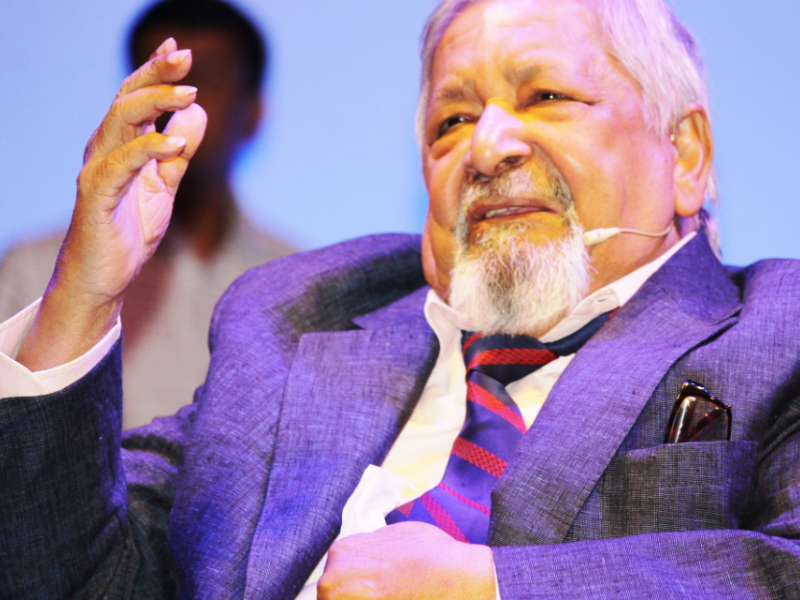In April 1983, the writer V.S. Naipaul, who died last Saturday at the age of 85, travelled to Israel to accept the Jerusalem Prize for literature. Then-Jerusalem mayor Teddy Kollek saluted Naipaul’s “noble vision of man’s struggle for freedom and liberty,” to which Naipaul replied: “The spirit of the people who prompted this kind of courtesy to an outsider will continue here.” The late Ephraim Katzir, five years removed from serving as Israel’s fourth president and heading the prize’s jury, described Naipaul as “both of the Third World and critical of it.”
Naipaul, who was born in Trinidad of Indian descent, was never shy in his criticism of colonialism. But while his writings are foundational to the postcolonial literary movement, he was often out of step with postcolonialism’s critical theorists. For one thing, he was not a fan of political Islam: in his 1981 book, Among the Believers: An Islamic Journey, Naipaul wrote, “The time before Islam is a time of blackness: that is part of Muslim theology. History has to serve theology.”
That sort of thinking is highly unpopular among postcolonialists, the greater postmodern movement from which it borrows heavily and, more generally, the contemporary far left. One is more likely to hear about how Israel is a colonialist oppressor, frequent chants of “Free Palestine” and even sympathy for terrorist groups like Hamas and Hezbollah. The effects of pushing such flawed narratives – with the lame excuse that it’s anti-Zionist, not anti-Semitic – have been obvious for some time on university campuses and are now becoming apparent in the mainstream, where people like U.K. Labour Leader Jeremy Corbyn seemingly can’t go an hour without causing an outrage among England’s Jewish community and Jews around the world.
Or, if you’re looking for something closer to home, consider this: at Sunday’s counter-protest to the Unite the Right rally in Washington, D.C., several speakers reportedly referred directly to “Palestine.” This was at a supposedly “anti-Nazi” rally.
The far right is not any better. This past weekend marked one year since the Charlottesville, Va., riots, in which neo-Nazis marched through the streets chanting, “Jews will not replace us,” and one counter-demonstrator was killed. It does not get much scarier than that image. Meanwhile, in Poland, the new far-right government recently attempted to whitewash Polish complicity in the Holocaust. Warsaw ultimately backed down, in large part due to Israeli Prime Minister Benjamin Netanyahu’s vocal criticism. And therein lies the basic contradiction on the far right vis-a-vis the Jews: on the one hand, “Jews will not replace us”; on the other, instinctual support for Israel. How to make any sense of that is beyond me.
READ: FROM YONI’S DESK: FACEBOOK AND THE HOLOCAUST: IS IT TIME TO UN-FRIEND?
We spend a lot of our time these days talking about the far ends of the political and ideological spectrum, and with good reason: the danger of the extremes is palpable. They seem to get stronger by the day. But we ignore the centre at our peril. If there is no established middle ground – if we neglect to maintain and reinforce the middle ground – then the descent toward the extremes seems inevitable, which is precisely what the far left and the far right want. That never ends well for us.

